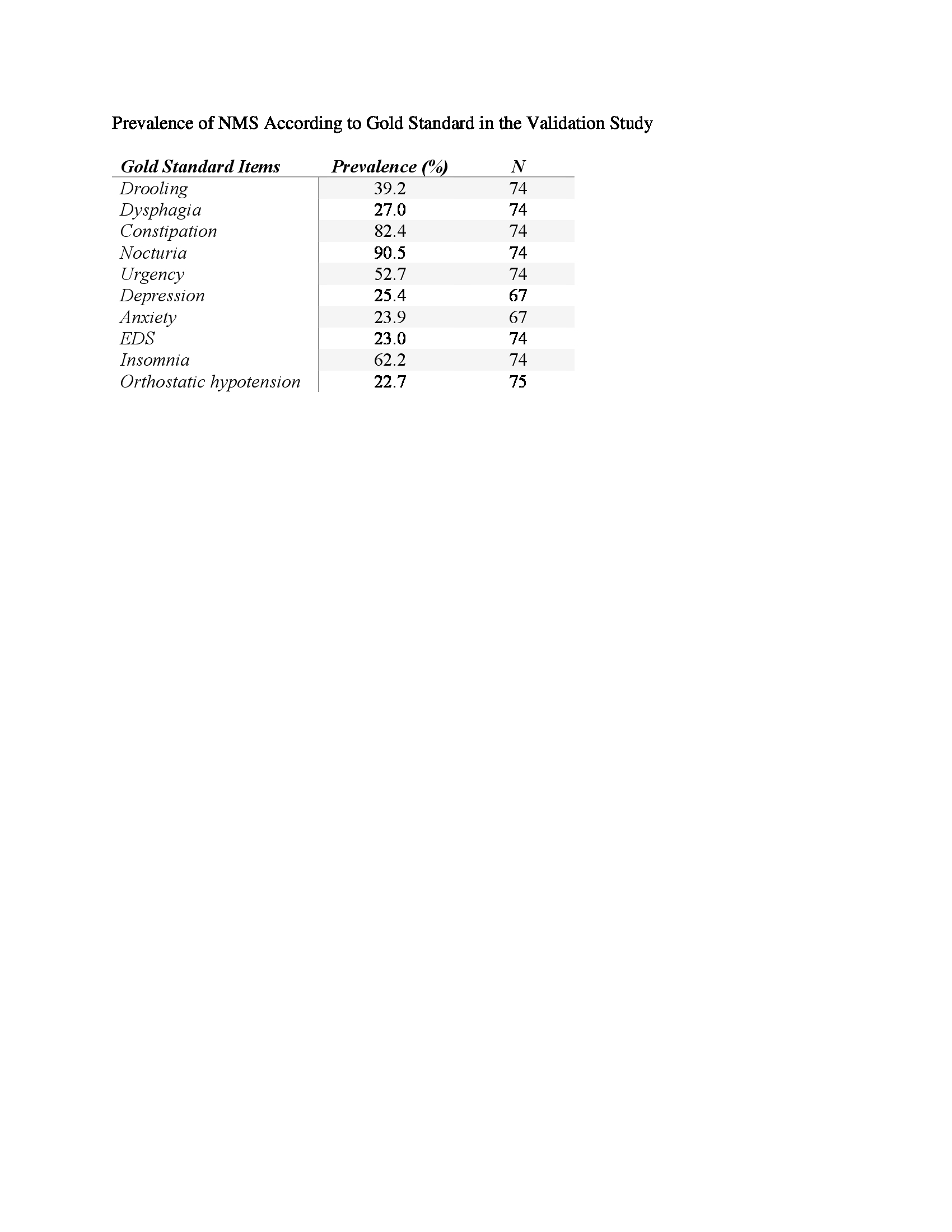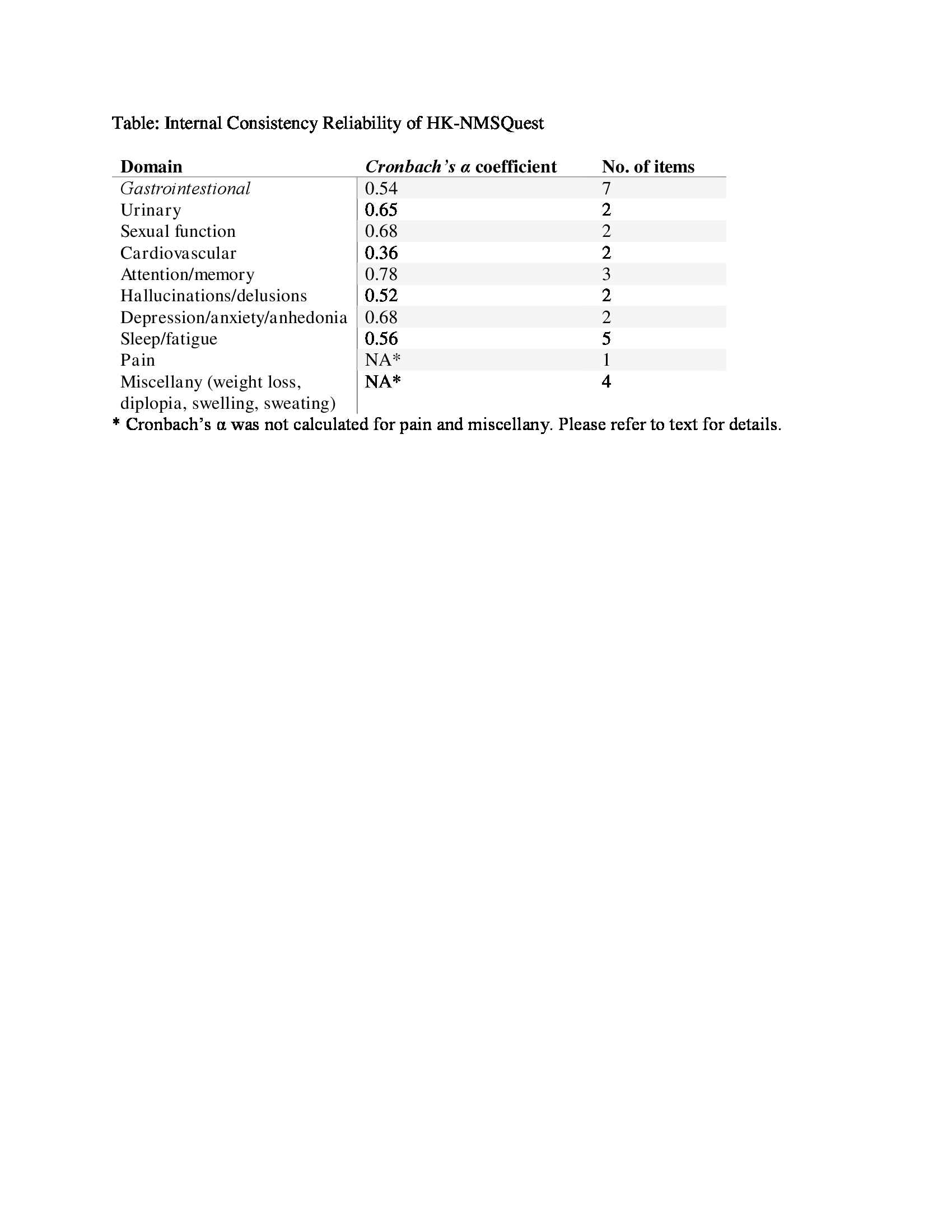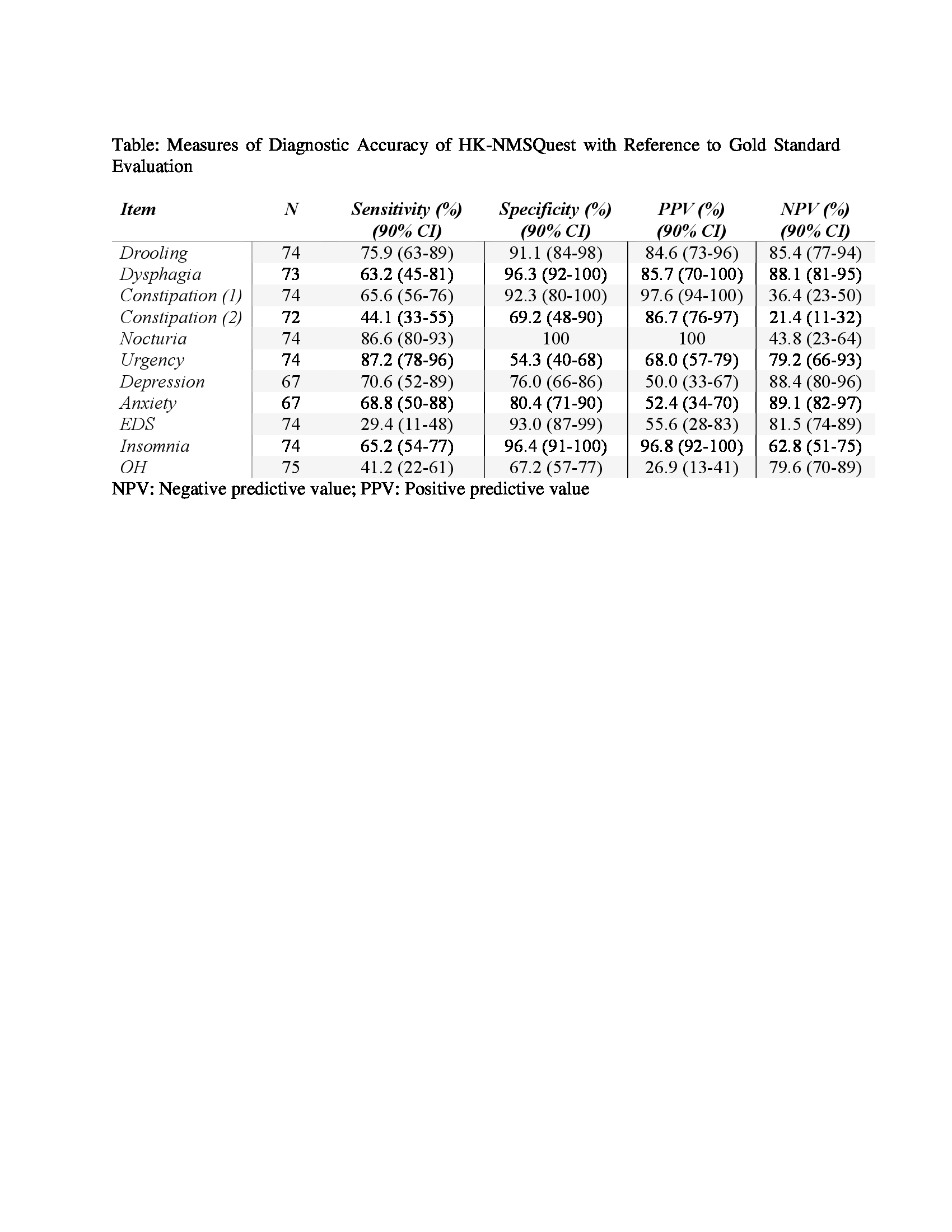Session Information
Date: Monday, October 8, 2018
Session Title: Parkinson's Disease: Non-Motor Symptoms
Session Time: 1:15pm-2:45pm
Location: Hall 3FG
Objective: This study aimed to translate and validate a standard Hong Kong Chinese version of the NMSQuest (HK-NMSQuest) to assist in identification of NMS in local PD patients.
Background: Non-motor symptoms (NMS) of Parkinson’s Disease (PD) are prevalent and have a significant impact on quality of life. However, they often go unrecognized by clinicians. The original Non-motor Symptoms Questionnaire (NMSQuest) was devised in 2006 as a self-administered rapid screening tool to aid early detection of these symptoms. However, a standard Hong Kong Chinese version for use in our local population is lacking.
Methods: The original NMSQuest was translated into the Hong Kong Chinese version of the NMSQuest (HK-NMSQuest). This was followed by a Validation Study, with 78 PD patients being recruited from Queen Elizabeth Hospital. They completed the HK-NMSQuest, and then underwent a gold standard clinical evaluation of NMS for validation. Respective sensitivity, specificity, positive predictive value, negative predictive value in relation to the gold standard were estimated. Internal consistency reliability was also analyzed.
Results: The mean age was 67.0 ± 8.3 years, 56% were male, and median disease duration was 8 years (IQR 6 years). From the gold standard evaluation, the prevalence of NMS ranged from 22.7% (orthostatic hypotension) to 90.5% (nocturia) [Table 1]. Among the items validated, Cronbach’s α, the measure of internal consistency reliability, was the highest in the attention/memory domain at 0.78. The mean Cronbach’s α was 0.60 [Table 2]. The sensitivities were high for urgency (87.2%), nocturia (86.6%) and drooling (75.9%). The sensitivities were low for excessive daytime sleepiness (29.4%) and orthostatic hypotension (41.2%). The average sensitivity was 65.4%. The specificities for the validated symptoms were high, with an overall specificity attaining 84.7% [Table 3].
Conclusions: Our study is the first in translation and validation of the NMSQuest for use in our local Hong Kong Chinese population. The HK-NMSQuest is simple and can be completed rapidly within 5 to 10 minutes similar to the original NMSQuest. The study shows that HK-NMSQuest has reasonable sensitivity for certain domains especially for urinary, gastrointestinal and mood. This validated HK-NMSQuest is a reasonable tool for the systematic and comprehensive assessment of NMS in our Hong Kong Chinese patients. Early recognition and assessment of NMS is the first step in bringing our PD patients holistic care.
References: 1. K. R. Chaudhuri, P. Martinez-Martin, A. H. Schapira, F. Stocchi, K. Sethi, P. Odin, R. G. Brown, W. Koller, P. Barone, G. MacPhee, L. Kelly, M. Rabey, D. MacMahon, S. Thomas, W. Ondo, D. Rye, A. Forbes, S. Tluk, V. Dhawan, A. Bowron, A. J. Williams, and C. W. Olanow, ‘International Multicenter Pilot Study of the First Comprehensive Self-Completed Nonmotor Symptoms Questionnaire for Parkinson’s Disease: The Nmsquest Study’, Mov Disord, 21 (2006), 916-23. 2. A. Todorova, P. Jenner, and K. Ray Chaudhuri, ‘Non-Motor Parkinson’s: Integral to Motor Parkinson’s, yet Often Neglected’, Pract Neurol, 14 (2014), 310-22.
To cite this abstract in AMA style:
V. Luk, N. Cheung, G. Chan, KF. Leung, NFJ. Lui, WW. Wong, I. Chan, C. Li. Validation of the Hong Kong Chinese version of NMSQuest (HK-NMSQ) [abstract]. Mov Disord. 2018; 33 (suppl 2). https://www.mdsabstracts.org/abstract/validation-of-the-hong-kong-chinese-version-of-nmsquest-hk-nmsq/. Accessed December 16, 2025.« Back to 2018 International Congress
MDS Abstracts - https://www.mdsabstracts.org/abstract/validation-of-the-hong-kong-chinese-version-of-nmsquest-hk-nmsq/



